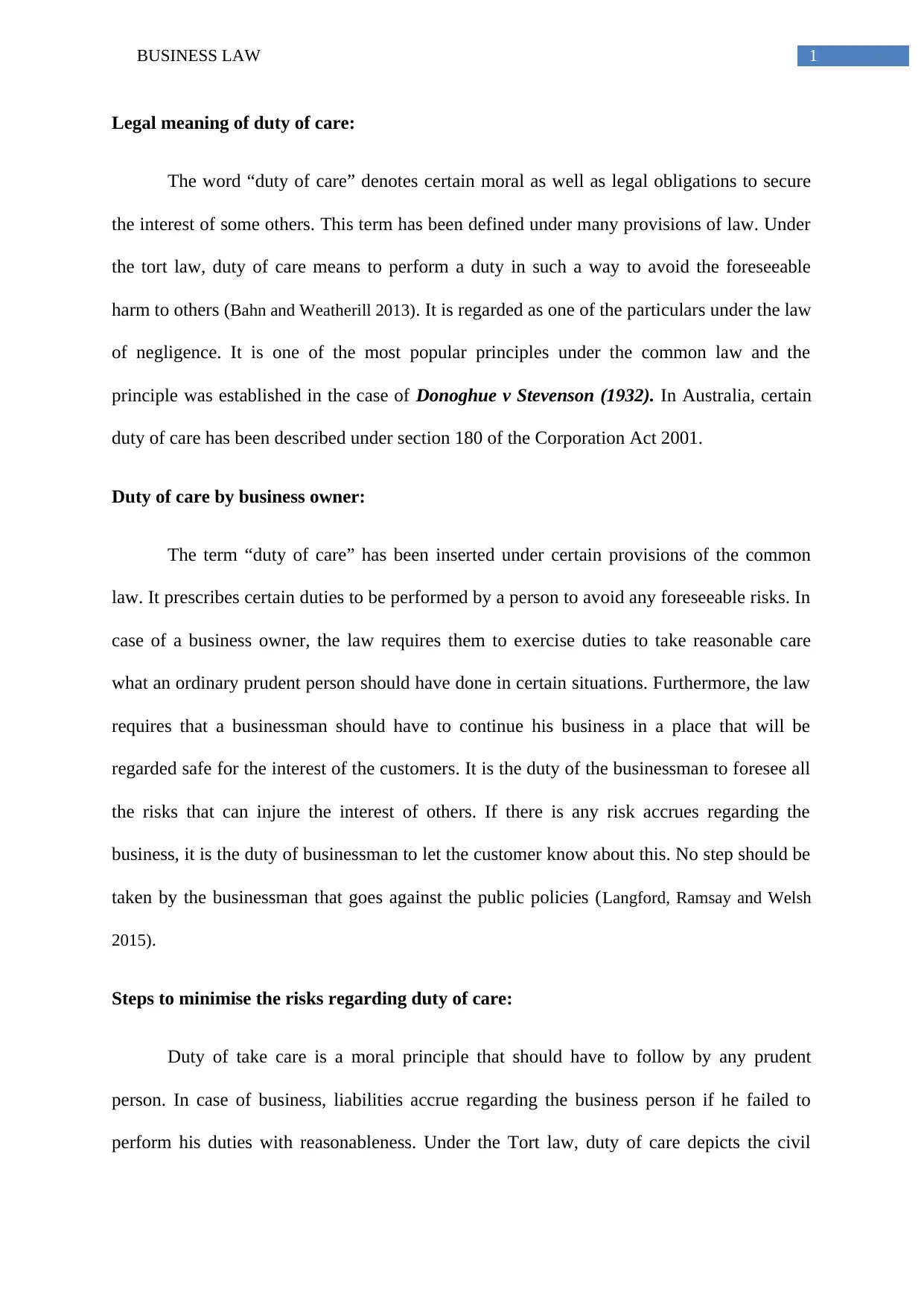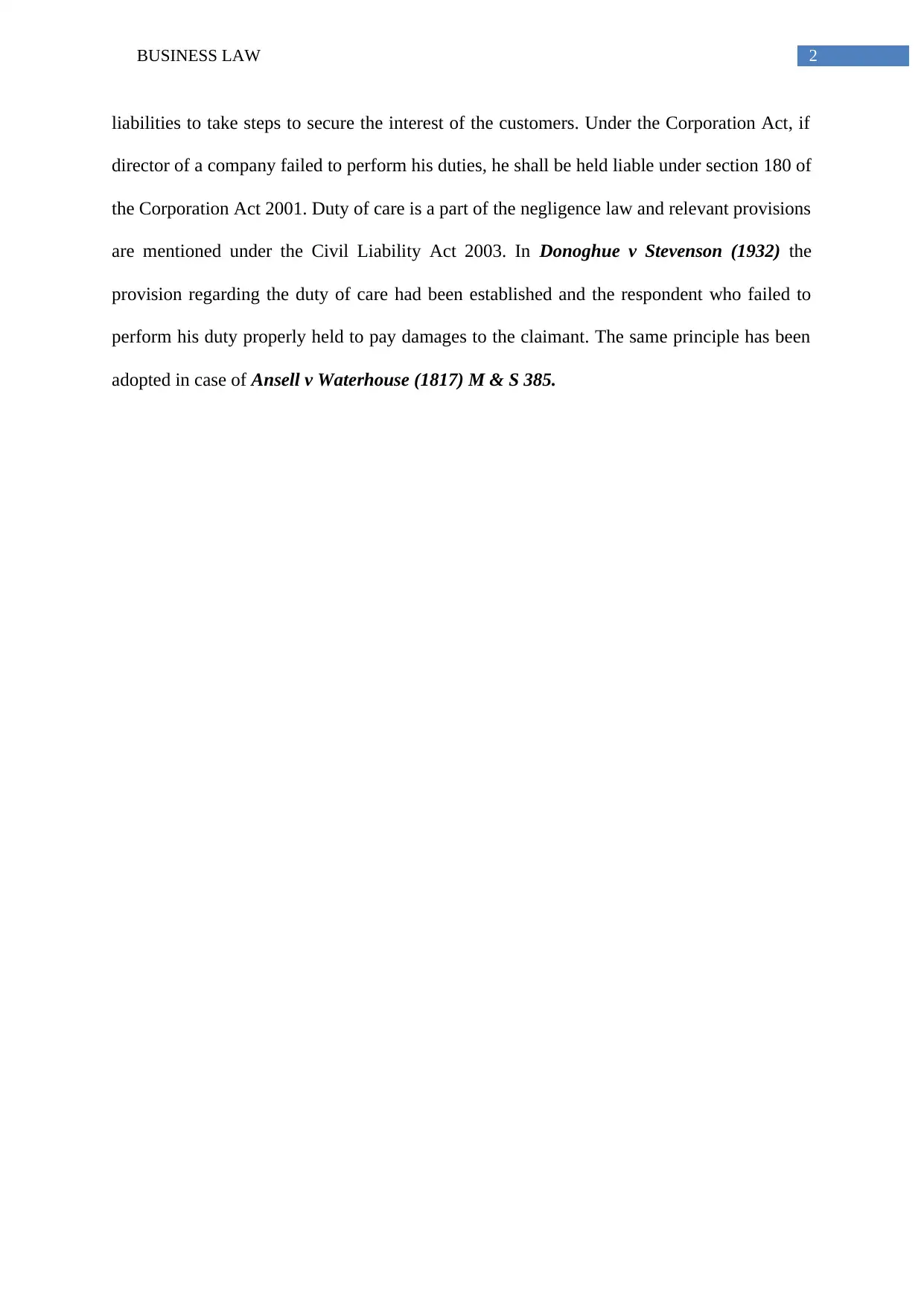Business Law Essay
VerifiedAdded on 2019/10/31
|4
|565
|52
Essay
AI Summary
This essay examines the legal concept of 'duty of care' within the context of business law. It defines duty of care, outlining its moral and legal obligations to protect the interests of others, particularly as it relates to tort law and negligence. The essay specifically addresses the responsibilities of business owners in fulfilling their duty of care, emphasizing the need to take reasonable precautions to avoid foreseeable harm to customers and maintain a safe business environment. It highlights the importance of proactively identifying and mitigating risks, and the potential legal consequences of failing to meet these obligations. The essay draws upon key legal precedents, including Donoghue v Stevenson (1932) and Ansell v Waterhouse (1817), to illustrate the established principles of duty of care and the potential for liability. Furthermore, it mentions the relevance of the Corporation Act 2001 (Australia) and the Civil Liability Act 2003 in defining and enforcing these responsibilities. The essay concludes by emphasizing the importance of adhering to the principles of duty of care to avoid legal repercussions and maintain ethical business practices.
1 out of 4











![[object Object]](/_next/static/media/star-bottom.7253800d.svg)